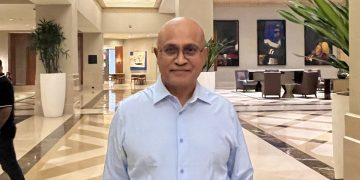During the past seven years, and thanks to the legal team headed by the preeminent former Attorney General, Mr. Anand Ramlogan SC, I have been able to win some landmark cases against the PNM government and prevent their attempts to conceal the atrocities which have occurred during their administration. That said, none of these cases on their own can hold a candle to the legacy of what these victories mean in terms of expanding the scope of the Freedom of Information Act and how it can be better used by citizens in this country for decades to come. The reason we have been able to redefine the purview of the FOIA legislation through the courts is the interpretation provided by the courts, which allows us to access a far greater amount of information that might have been available prior. And it is this interpretation of the law for which the PNM appears to be continuously befuddled that has led them to defeat after defeat in the courtroom, which appears to be failing them again in the matter concerning Mr. David Lee.
I say this because the PNM government appears to be operating under the impression that the Tax Exemptions which are provided to Parliamentarians are governed by the Travelling Allowance Act, which is meant to regulate the transport needs of the Public Service, however, there is no evidence to suggest that this is correct. While there are some similarities between the provisions within the Travelling Allowance Act and the accommodations afforded to Parliamentarians as set out in the report of the Salaries Review Commission, it should be noted that neither document refers to the other in any context. Moreover, it is clear through the wording of the Travelling Allowance Act, which is subtitled as “An Act relating to Travelling Allowances to Public Officers” is meant to legislate “Officers” who are defined as “every person temporarily or permanently employed in the public service of Trinidad and Tobago,” which has never extended to Ministerial portfolios. And it will be the onus of the legal team for Mr. David Lee to ensure that this landmark case doesn’t allow the PNM government to change this fact, otherwise the consequences will be far-reaching and affect the status and autonomy of the entire Parliamentary caucus, especially those who do not sit on the Government bench.
Imagine for a second that the Government of this country tabled a Bill to provide freedom of speech to all media personnel, your immediate thought might be to ask why such legislation would be necessary as those Rights are already Enshrined in the Constitution. And you would be correct to think that. Redundant legislation is not only unnecessary and time-wasting, but it also runs the risk of contradicting any laws that might already be in place.
That being the case, if the Travelling Allowance Act was indeed intended to legislate the transportation needs of Parliamentarians, why then would it require the Parliament to adopt the report of either the Salaries Review Commission or the House Committee for it to come into effect? The Travelling Allowance Act has, since 1955, provided a tax exemption for vehicles being used by Officers of the Public Service who require ownership of the said vehicle to complete their duties. Despite this legislation existing before our Independence, however, it is the Salaries Review Commission who have included the provision in their reports, and it is on that basis that Parliamentarians enjoy the exemption facility for their vehicles.
It should be noted that within the Report of the Salaries Review Commission, they refer to the exemption as a benefit that Parliamentarians enjoy, and do not refer to the vehicle as being an extension of their work parameters. The second point of contention lies in the specific wording used by the SRC in their report as it relates to the difference between the vehicle exemption and Transportation Allowance. As mentioned before, the SRC consistently as a benefit to be enjoyed by Parliamentarians and other office holders as exampled here:
“In reviewing the benefit, we have recommended limits where provision exists currently for total exemptions from Customs Duty, Motor Vehicle Tax (including Special Motor Vehicles Tax) and Value Added Tax as detailed in the relevant chapters.”
With regards to Transportation Allowance, however, it is defined explicitly as being:
“The Transportation Allowance is provided to assist office holders in meeting the costs associated with keeping and using a motor vehicle for the performance of official duties and is not contingent on the ownership of a motor vehicle. Based on these costs, we recommend increases in the Transportation Allowance as set out in the relevant chapters.”
As such, it is clear that for Parliamentarians, it is the Transportation Allowance that is meant to serve them in the course of their public duties, whereas the tax exemption for vehicles is a personal benefit that falls within their remuneration package. That being the case, there is no burden placed on any Parliamentarian who has utilized the tax waiver to purchase a vehicle to use said vehicle exclusively for their work. And what is worse is that no one understood this better at one time than Dr. Keith Rowley himself. I, therefore, leave you with a quote from his contribution to the debate to adopt the 98th Report of the SRC on February 21, 2014, when Dr. Rowley explained the following:
“The House recommends a duty allowance, and I so recommend, Mr. Speaker. Quantum: the Cabinet can determine what is a reasonable quantum but I think the idea of a duty allowance is eminently awardable to Members of the House. There are people all over the system with housing allowances, why not Members of Parliament? Why not? And, as for transportation allowance, as per transport, my memory seems to tell me that sometime in the long past it was the said SRC that recommended state vehicle and state driver for Members of Cabinet. But, somehow, that now goes through the roof, and the car that you are buying now with your own money on an interest rate on a loan higher than the bank rate, they find that you must get the taxes capped. What did you all do to the SRC? I suspect that some one of you offended somebody in the SRC; this is not a normal thing.”




































































